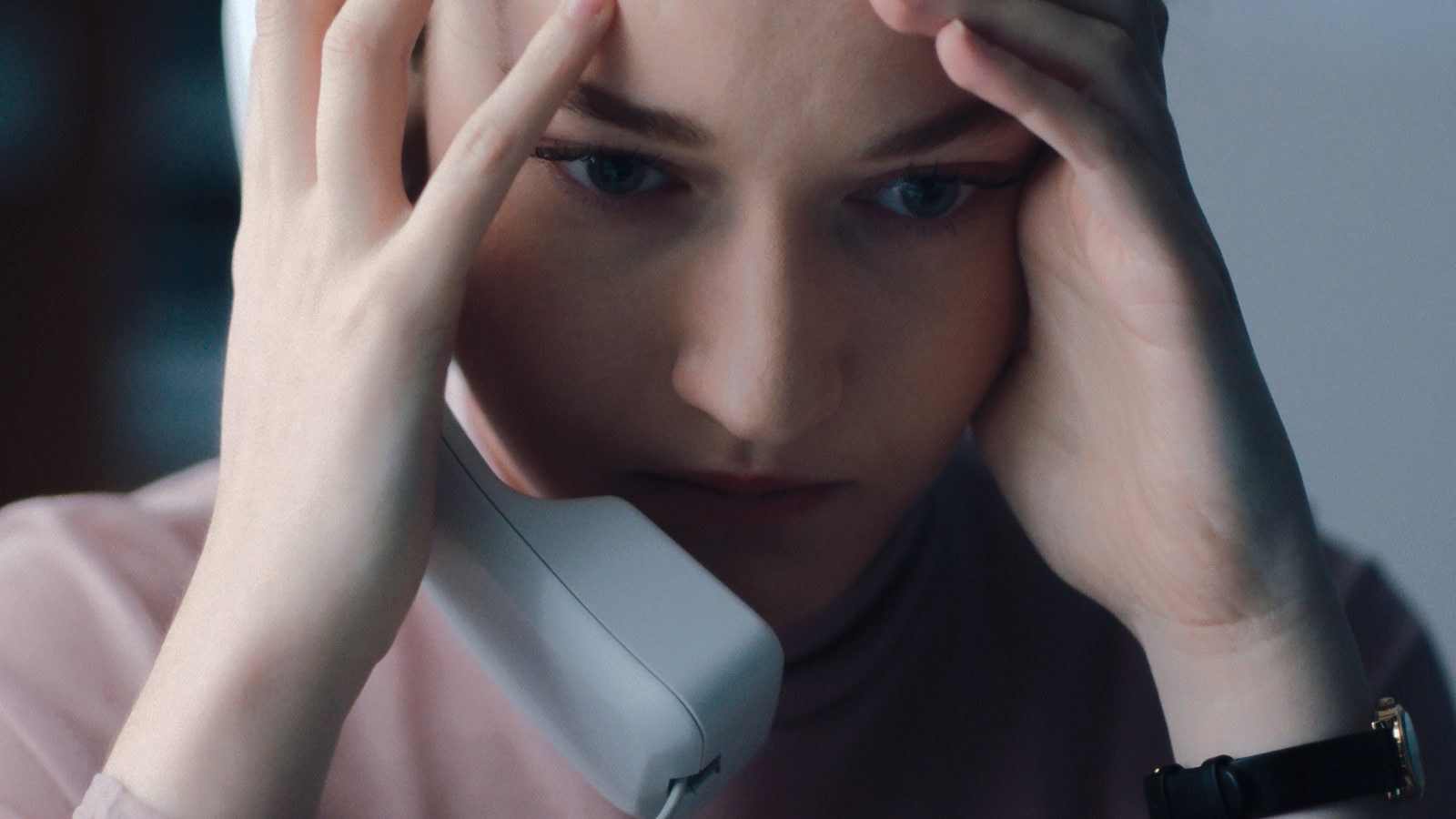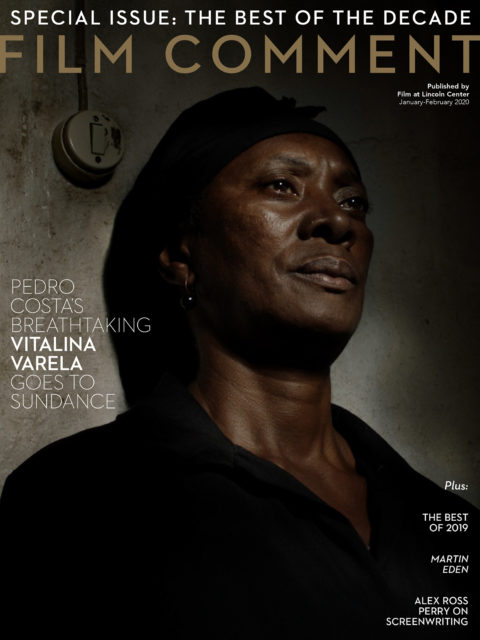By Devika Girish in the January-February 2020 Issue

The Big Screen: The Assistant
(Kitty Green, USA, Bleecker Street, Opening: January 31)
Last October, a former assistant to Harvey Weinstein named Rowena Chiu wrote an op-ed in The New York Times detailing her abuse and attempted rape at her boss’s hands two decades ago. One detail from her early career caught my attention. During her first day on the job in 1998, she was asked to sit in front of Weinstein at a screening. When she moved slightly, he roared at her in rage. Chiu wrote of the incident, “I should have known better and left the room (and the job) that very instant.” It’s the kind of exploitative-but-not-illegal behavior that’s still fetishized as the trial by fire necessary to land a coveted spot in Hollywood—and that turns underpaid, overworked, low-level employees not just into victims but also enablers, forced into fearful silence.

From the January-February 2020 Issue
Also in this issue
In her harrowing new feature The Assistant, Australian filmmaker Kitty Green (Casting JonBenet) takes on the task of detailing the lives of these workers and the webs of power and silence they’re often caught in. Composited from hundreds of interviews that the director—whose prior filmography consists exclusively of documentaries—conducted with women in the industry, it’s a film of labored banality, constructed to be as unspecific as its title and the name of its protagonist, Jane (Julia Garner), suggest. In taking us meticulously through the motions of a single day in Jane’s life, Green de-emphasizes individual characters to foreground a workplace culture where monotony seems to have numbed moral instinct. Even the unnamed Weinstein stand-in is never seen in the film, only heard in irate, yelled commands.
Jane’s day begins before sunrise. A driver picks her up from her apartment in Queens and drives her to a Manhattan office, where she is the first to arrive. Her myriad thankless duties begin right away: emptying trash, making coffee, printing scripts, arranging travel, and so on. Green films Jane with a close, locked-in camera, allowing the drudgery of her job to sink in while slowly capturing the indignities and negotiations that accumulate in the background. The other two assistants, both young men, delegate menial tasks to Jane and treat her with sexist condescension. She is repeatedly forced to deal with her boss’s enraged wife, who wants to know where he’s been. Then come the more sinister parts of her job: returning a stray earring, found on the floor of her boss’s office, to its distraught young owner; scrubbing his couch clean of mysterious stains.
The Assistant unfolds for the most part as a stoic, miserabilist drama, its implications etched in the controlled, brittle inflections of Garner’s face. As Jane, the actress moves through the spaces of the film with an almost apologetic air of self-effacement, as if wishing to disappear into the office decor. But a series of events involving a pretty, inexperienced new assistant proves to be too much, and Jane finally confronts the company’s HR rep, played by a scene-stealing Matthew Macfadyen. Coming off an excellent turn as a corporate doofus on HBO’s Succession, Macfadyen teeters eerily between warmth, feigned ignorance, and menace, his threats couched in glib reassurances and “career advice.” Much of what happens in The Assistant isn’t news for anyone familiar with these environments or coverage of Weinstein’s predatory ways, but this exchange, in its unnerving demonstration of gaslighting, confronts us anew with how deep and impenetrable the fortresses of privilege and capital are.
The Assistant bristles with tension in this one scene, its slow accretion of details building to a climax of sorts. But instead of escalating this glimpse into the consequences of speaking up, the rest of the film relegates itself to depicting the agony of staying silent. Green’s film is an interesting test case for the kind of cinematic approaches possible for the #MeToo movement, a subject that risks inviting sensationalism and voyeurism. With her measured, unrelenting realism and focus on systems of complicity rather than the crimes themselves, Green avoids those pitfalls, but her approach leaves no room for displays of courage, let alone hope or change. Although affecting and even revelatory at points, The Assistant is ultimately a drama of resignation. The choice it dramatizes is a familiar one: we can all relate to the impulse to pick one’s livelihood and career over challenging the rich and powerful. But a more compelling and timely film might show us what it takes to make the tougher call and risk losing it all—like Rowena Chiu, her colleague Zelda Perkins, and many others have done.







